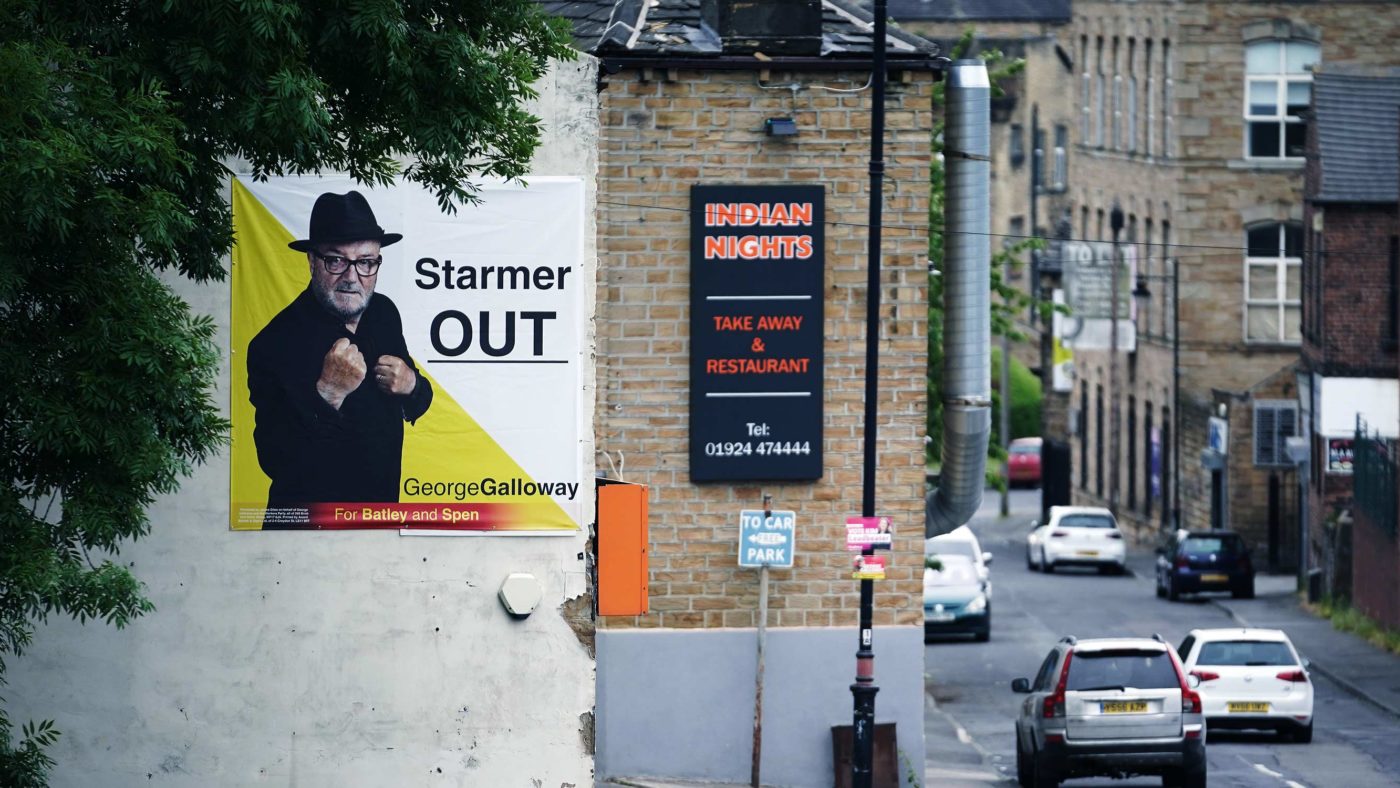Another week, another by-election. After getting hammered in Chesham and Amersham, the Tories are probably relishing a vote in a Labour-held Brexit-voting constituency.
We should, however, caution against simplistic comparisons between this race and the historic Conservative victory in Hartlepool in early May. While both are Leave-voting northern English constituencies, there are some big differences between the two seats. One is a coastal town in County Durham, the other a collection of small towns and villages in the heart of West Yorkshire.
Their electoral histories are quite distinct too. Since its creation ahead of the February 1974 general election, Hartlepool had elected a Labour MP every single time, until the Conservative Party’s comfortable victory in last month’s by-election. Batley and Spen is less Brexit-inclined than Hartlepool (Leave votes of 60% and 70% respectively) but has a more Conservative-friendly electoral history. Indeed, it was represented by the Tories from its formation in 1982 until the Labour landslide of 1997. In 2019 Labour’s Tracy Brabin – whose departure for the West Yorkshire mayoralty triggered this election – took the seat with a majority of just over 3,500.
Another effect of Batley and Spen being less pro-Leave than Hartlepool is that the Brexit Party has never been much of a force in the area. The party took 25.8% of the vote in Hartlepool in 2019, but just 3.2% in Batley and Spen. Far more significant for this by-election is the decision of local celebrity Paul Halloran not to stand. Though unlikely to have won the seat, Halloran’s Heavy Woollen District Independents managed a creditable 12.2% in 2019. His absence presents an opportunity for the Tories to hoover up more pro-Brexit votes (Halloran’s party is led by former Ukip man Aleksander Lukic).
Another plus for the Conservatives is the involvement of that perennial provocateur, George Galloway. Now representing the Workers Party of Britain, the former Respect MP for Bradford West has set out his stall as an anti-Starmer true socialist, Eurosceptic voice. His pitch is aimed squarely not just at disaffected Corbynites, but traditional Labour-voting Muslims – hence Galloway’s emphasis on foreign policy issues like Palestine and the conflict in Kashmir, along with concerns over anti-Muslim prejudice here in the UK.
Now, Galloway is not going to win, but his influence on the race is two-fold. First, he will take votes away from Labour in what could be a very tight race. But just as importantly, his presence has forced Labour’s candidate Kim Leadbeater to fight this by-election at least partly on his preferred territory. That means getting caught up in issues which are simply not politically or emotionally salient for a great many voters in the constituency, feeding into the Tory charge that Labour has become a party obsessed with niche issues and out of touch with what was once its core vote.
The Tory candidate, Ryan Stephenson, may not be a local (nor was Hartlepool’s new MP Jill Mortimer, for that matter), but his promise to deliver more investment and jobs to this corner of West Yorkshire probably resonates more than anything Labour might have to say about the West Bank. Likewise, his focus on improving public transport in ‘forgotten towns’ such as Heckmondwike and Cleckheaton is liable to go down well.
If Labour do manage to hold onto the seat – and the bookies seem to have very little confidence they will – it will certainly be a big boost to party morale and some much-needed relief for Sir Keir Starmer. It would demonstrate that the party can still win in Brexit-voting seats, even with an arch-Remainer at the helm. Then again, lose the seat and all the same questions and criticisms we heard after Hartlepool will crop up again – and you can be sure the Corbynites will be calling for Starmer to step down.
For the Tories, too, it will be a vindication of their strategy of focusing on northern Labour-held seats, even if it may cost them support in leafier southern seats such as Chesham and Amersham. Victory would be even sweeter for Boris Johnson, given that Batley and Spen is not actually part of the ‘Red Wall’ christened by pollster James Kanagasooriam. Then again, there’s plenty of that wall still standing – dozens of seats like Kingston upon Hull East and Stockton North, with significantly-reduced Labour majorities and notable 2019 Brexit Party vote shares, ripe for a Tory assault.
Given the febrile state of British politics, it would be a brave person who would predict next Thursday’s result with complete confidence. One thing we can say for sure is that, whatever the result, it will be another fascinating chapter in the story of our post-Brexit politics.
Click here to subscribe to our daily briefing – the best pieces from CapX and across the web.
CapX depends on the generosity of its readers. If you value what we do, please consider making a donation.


